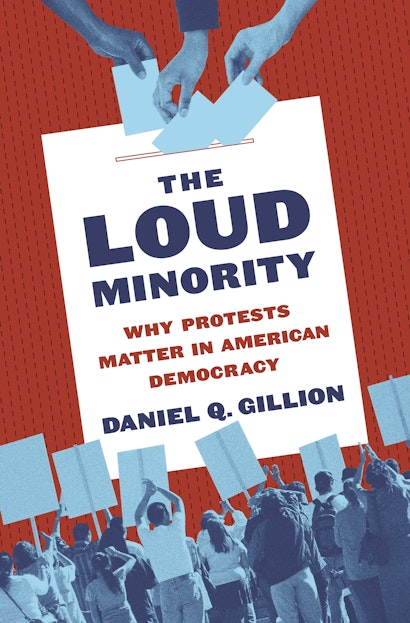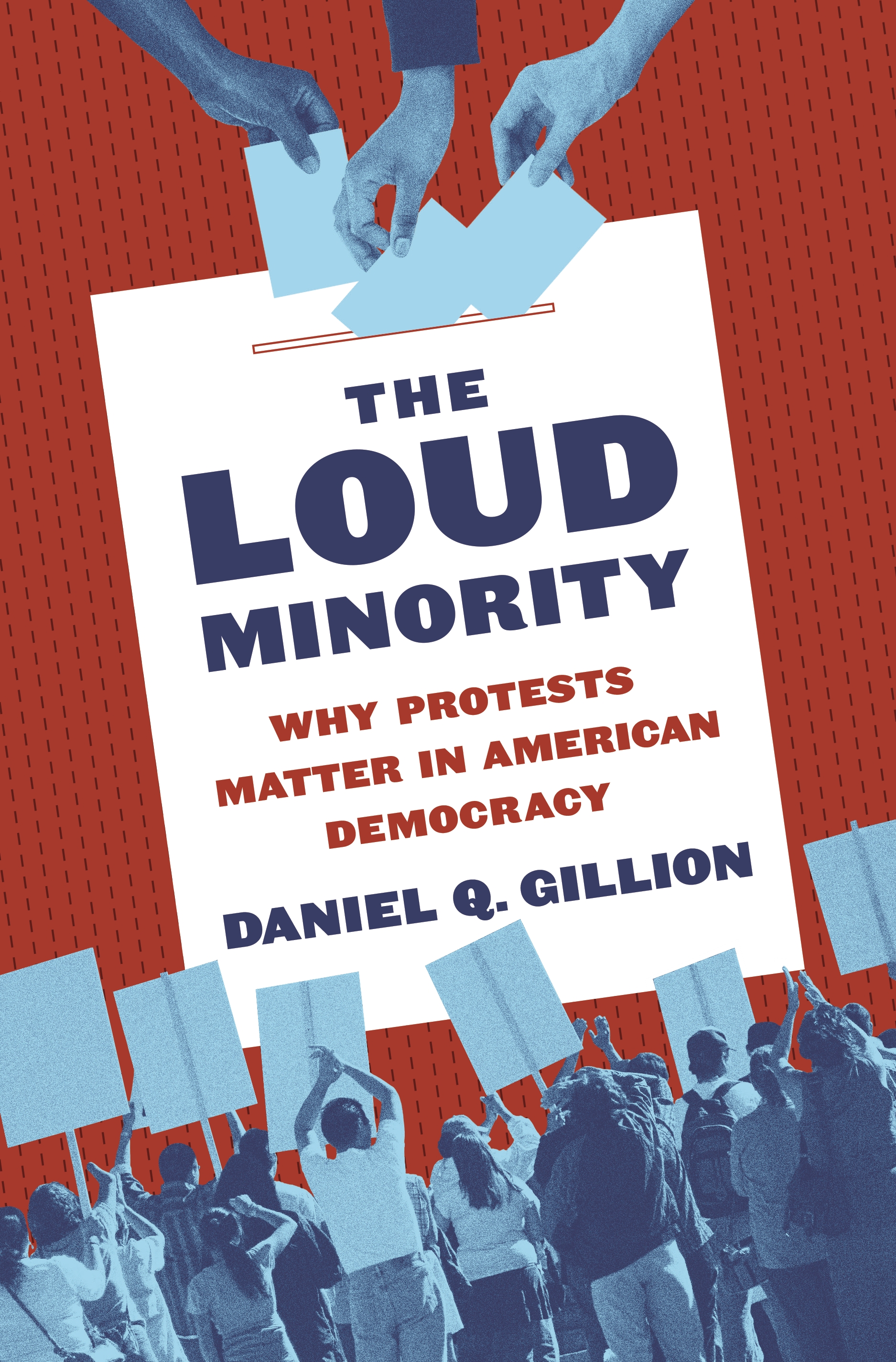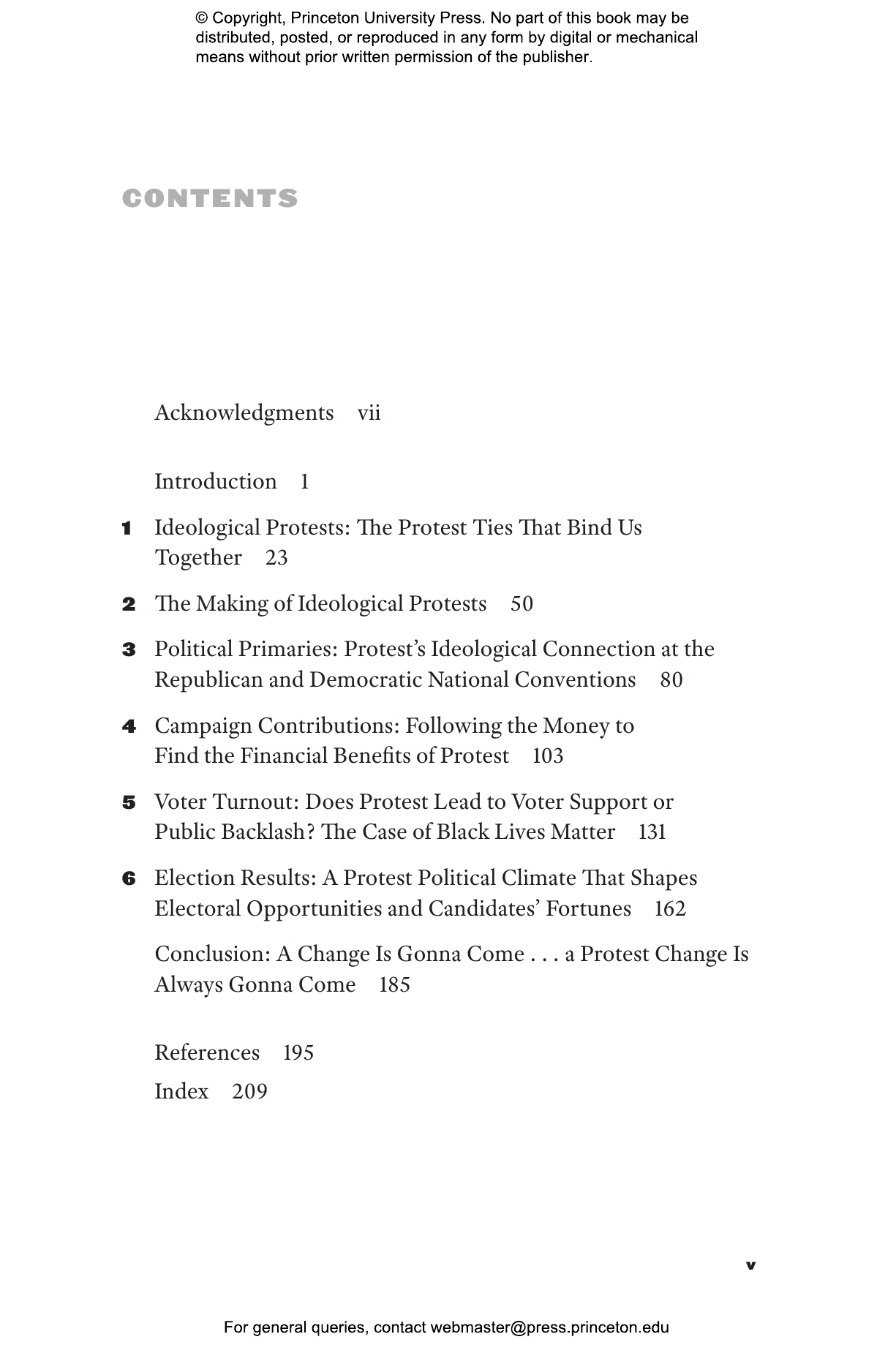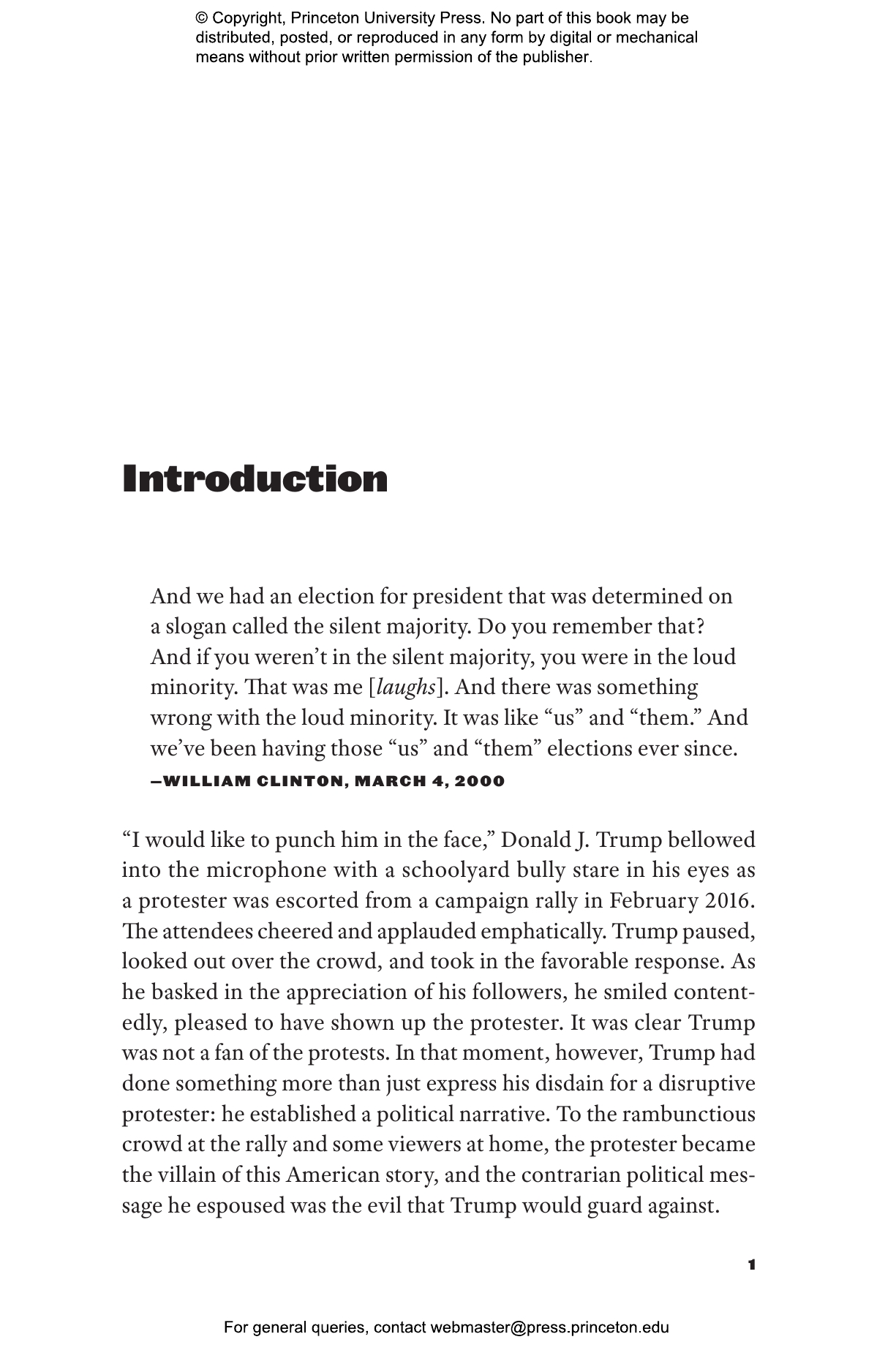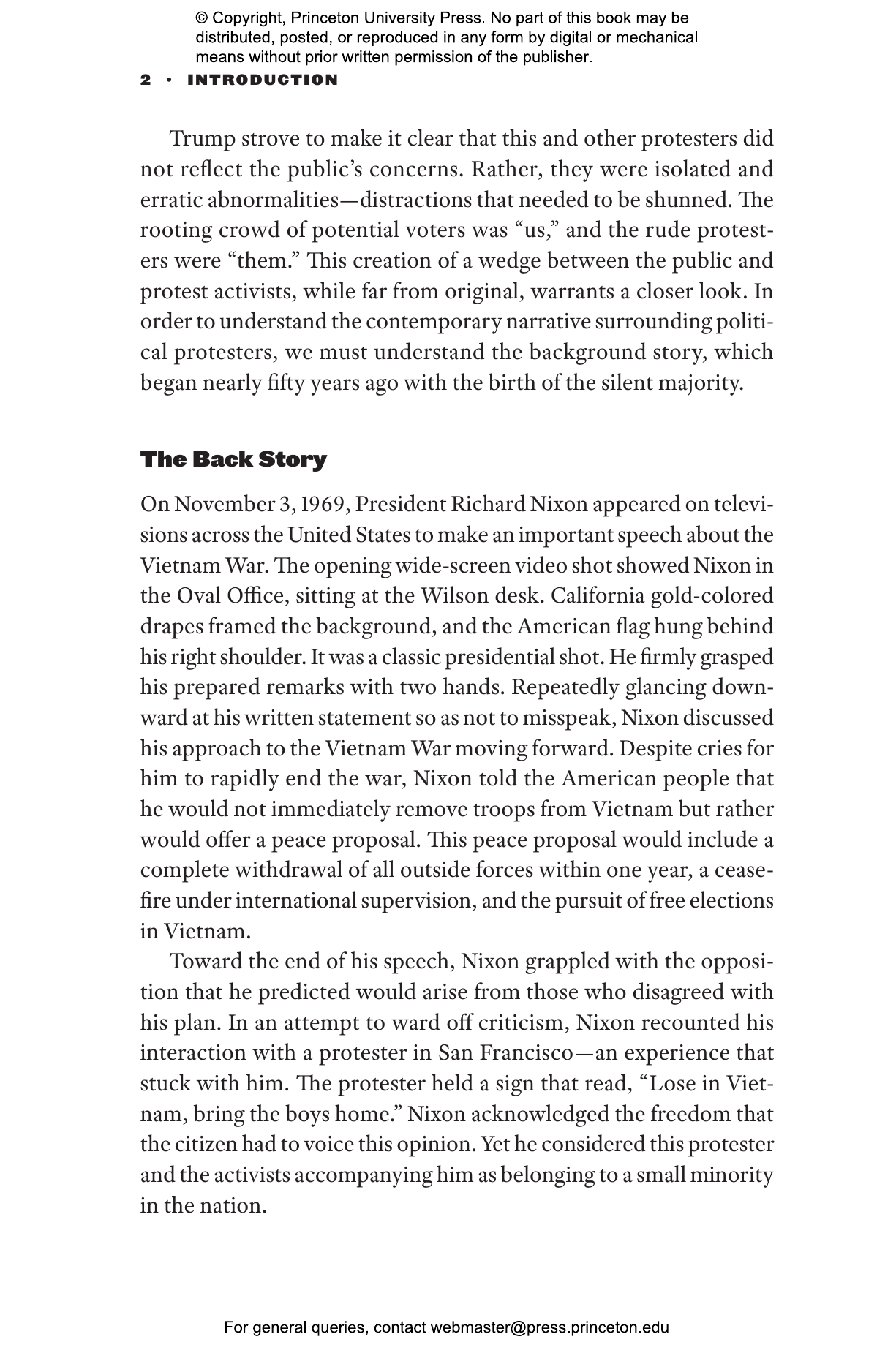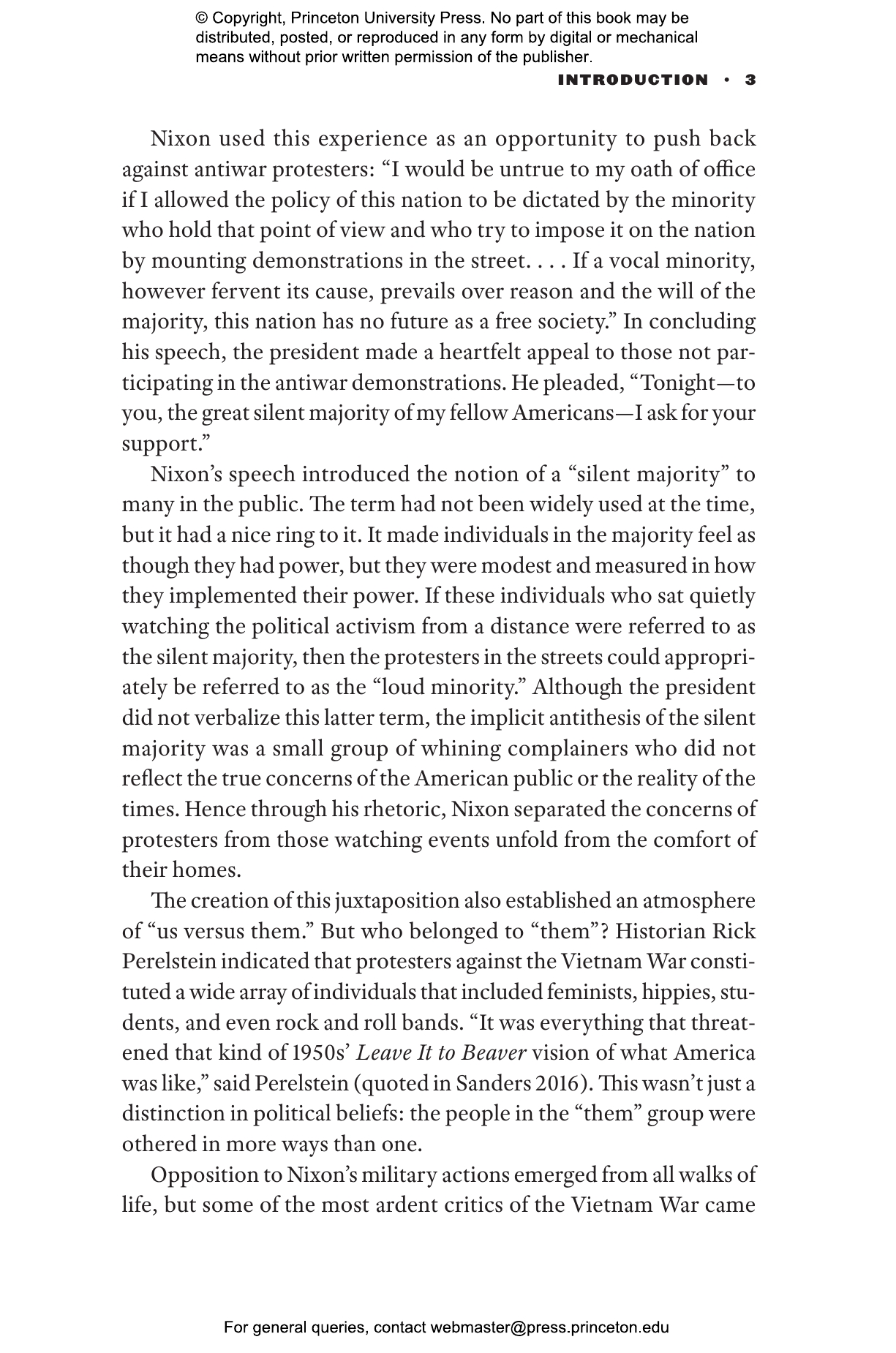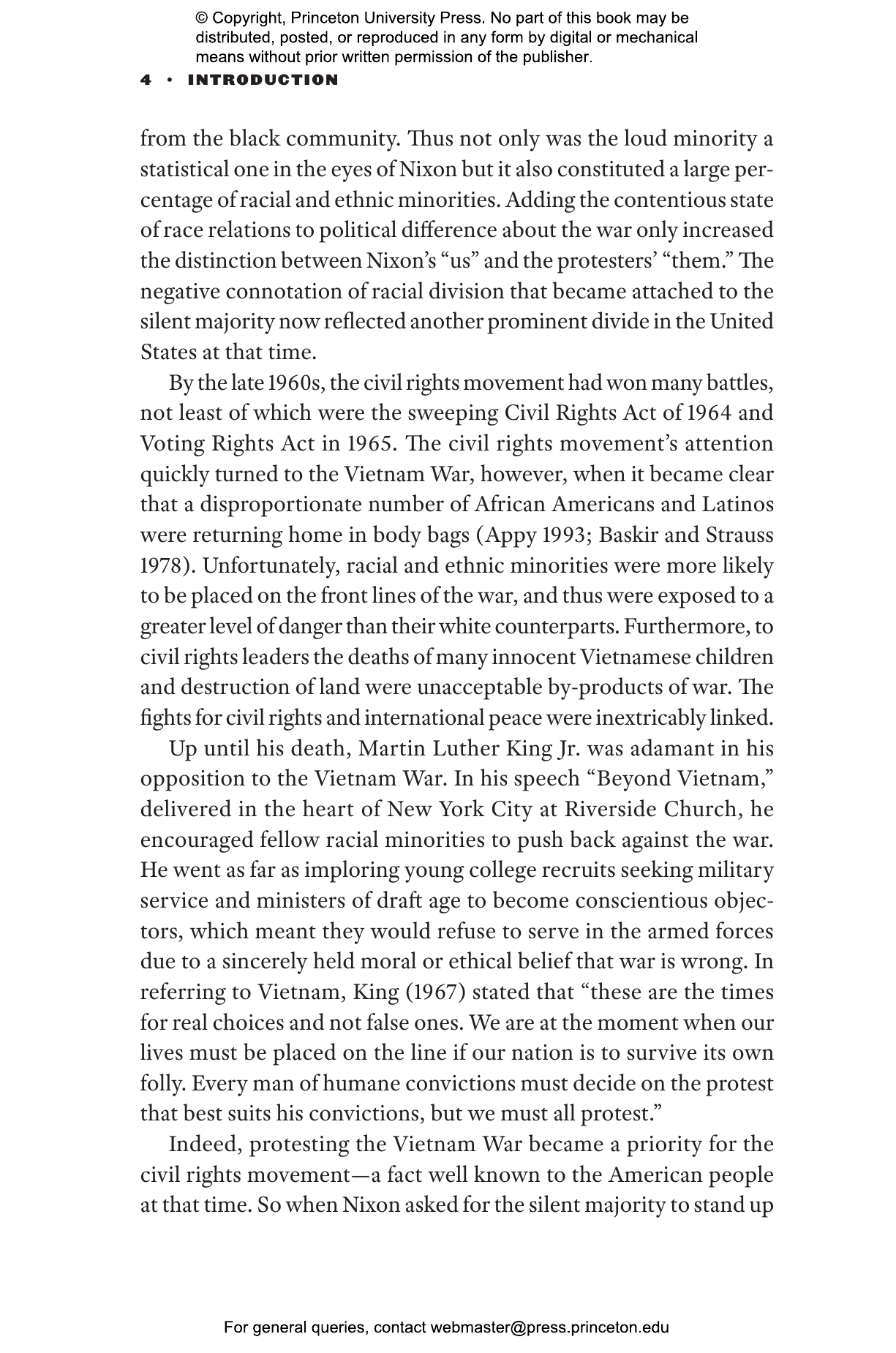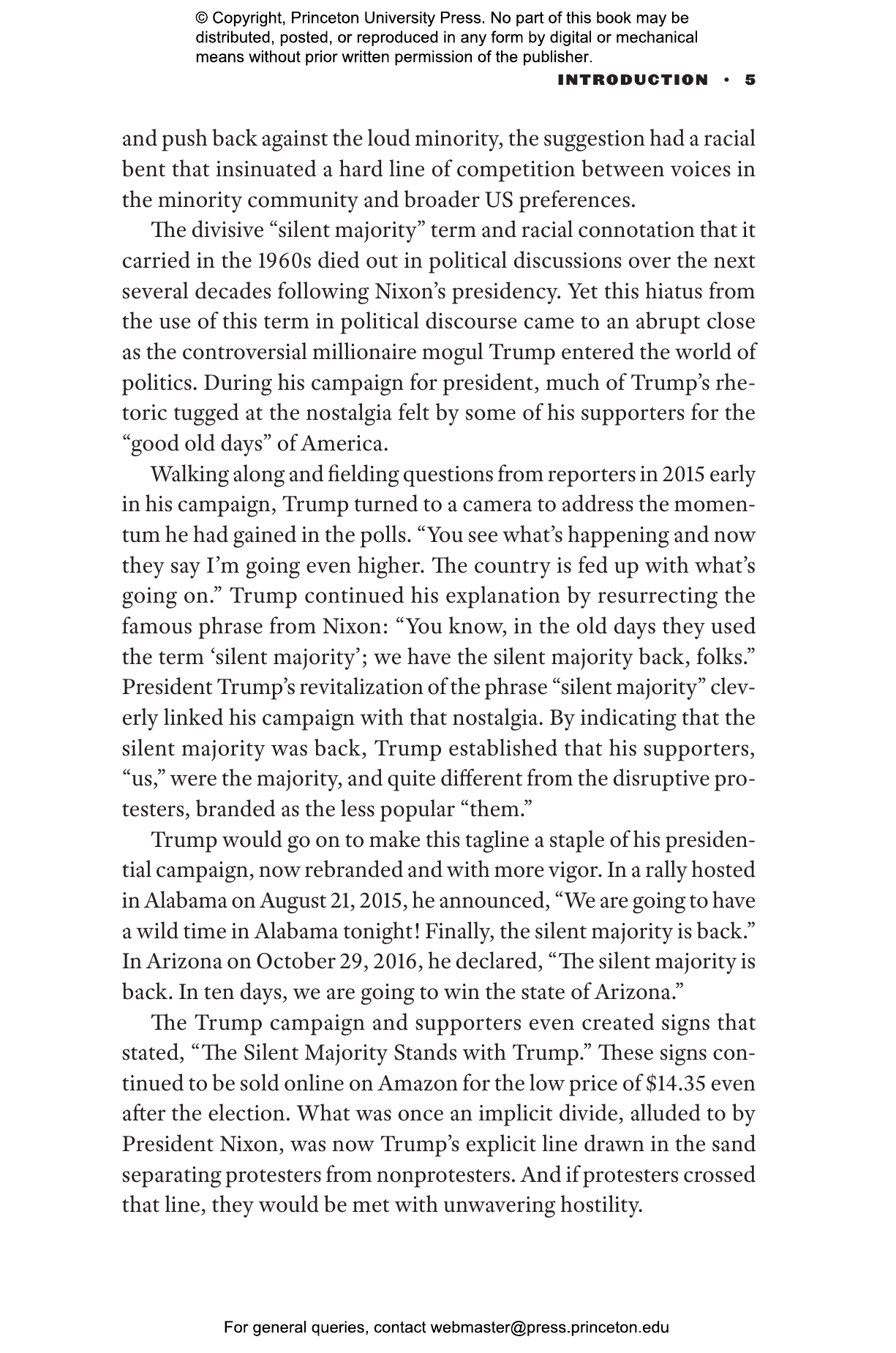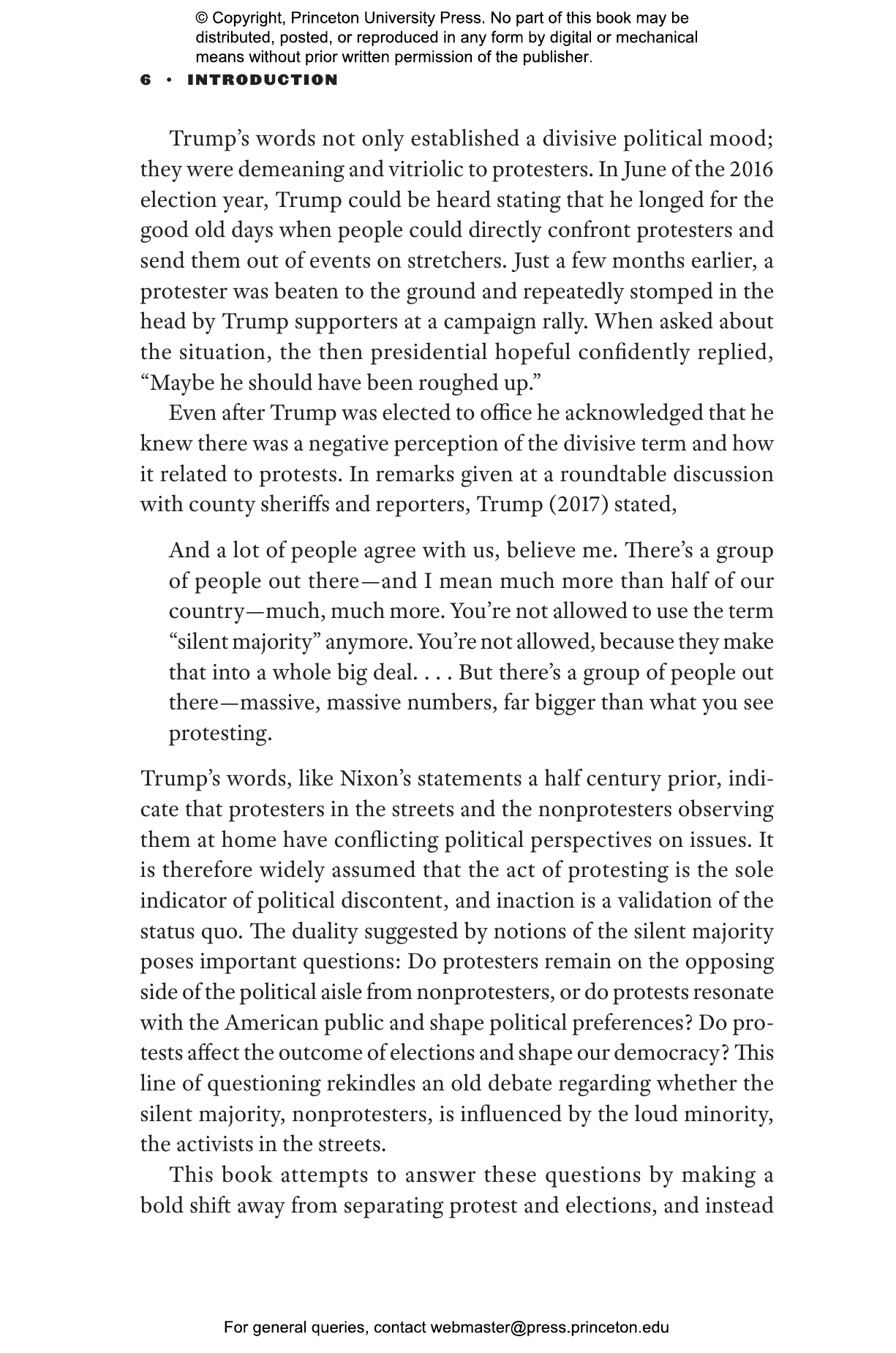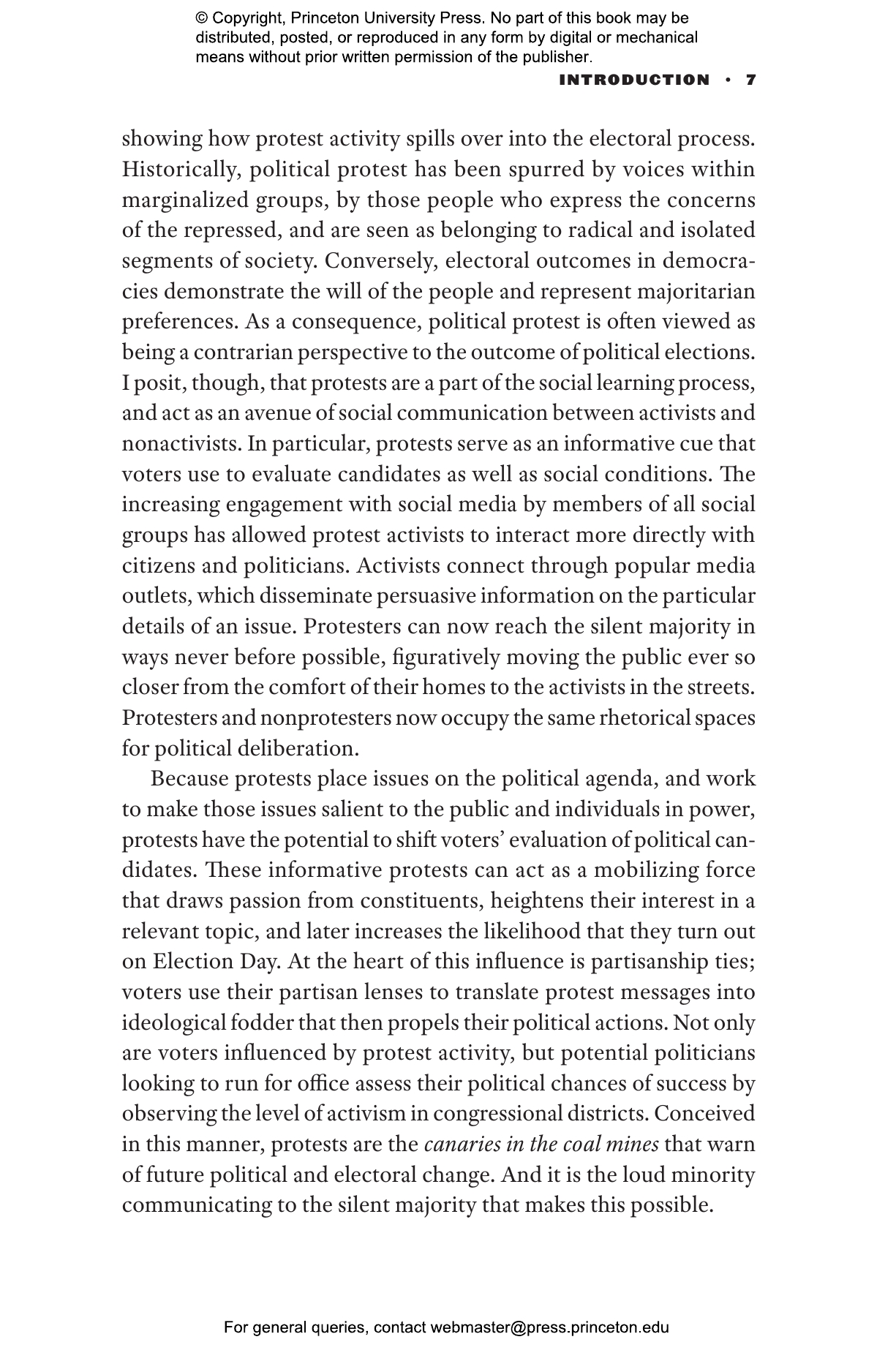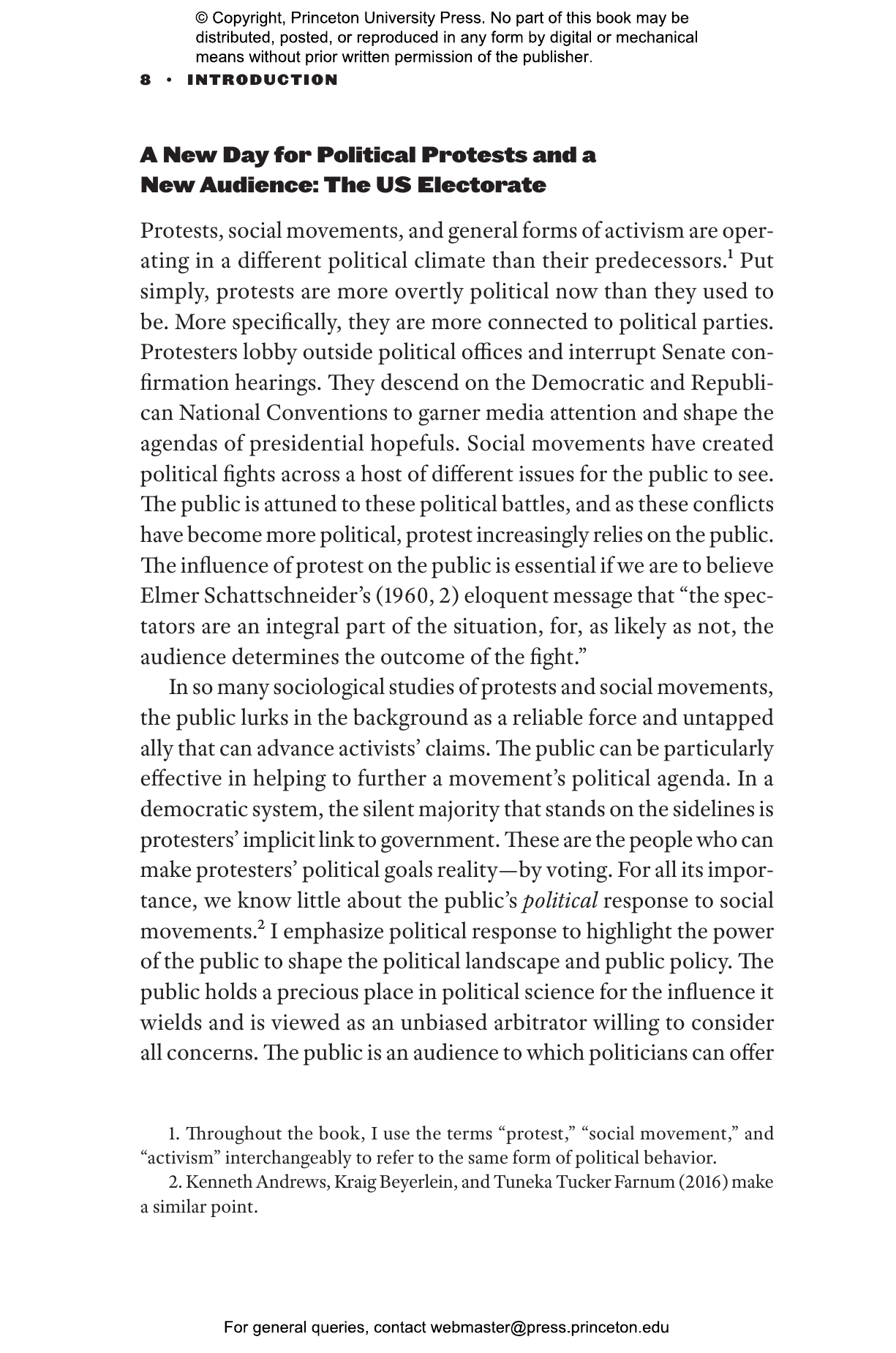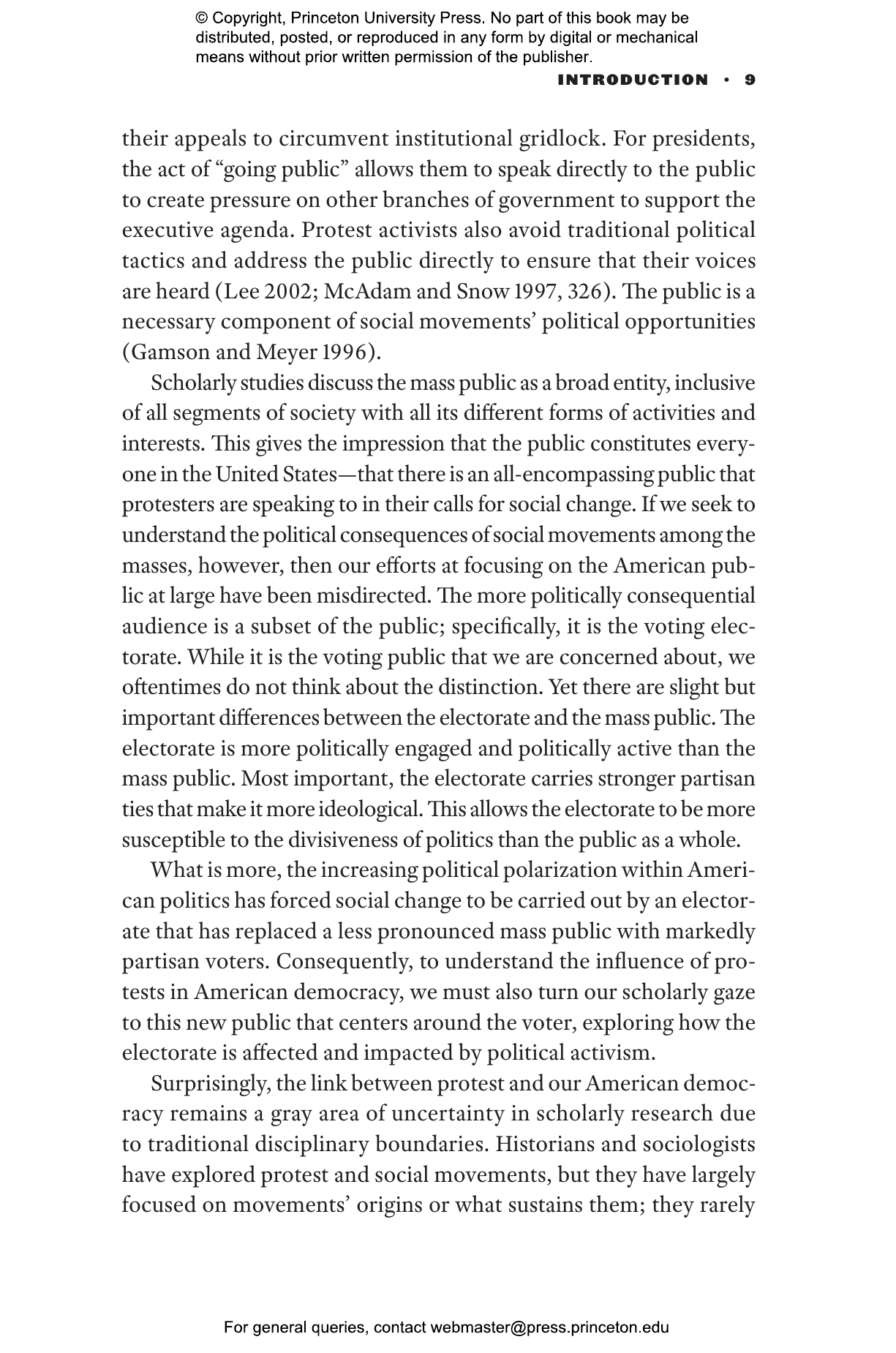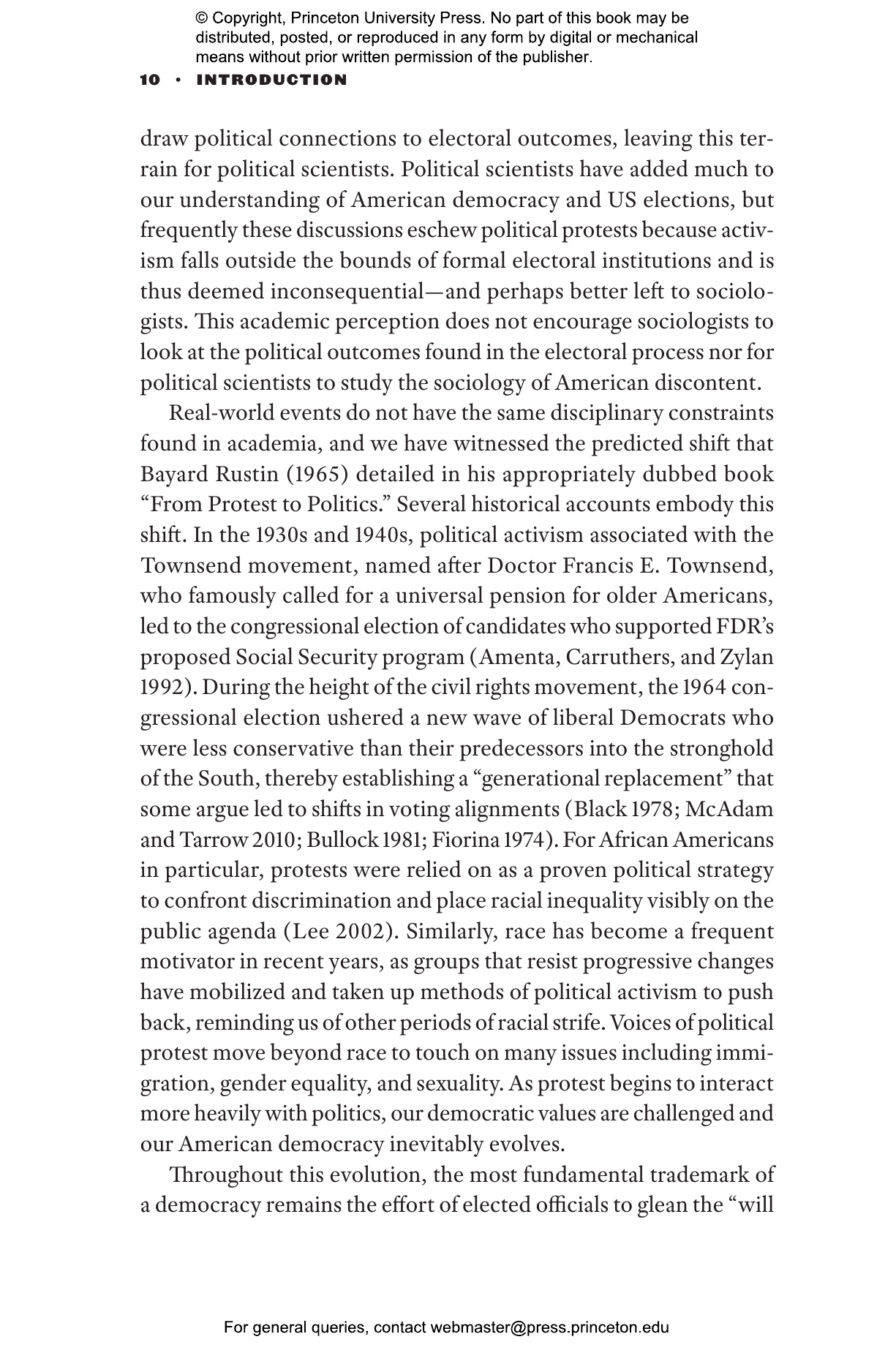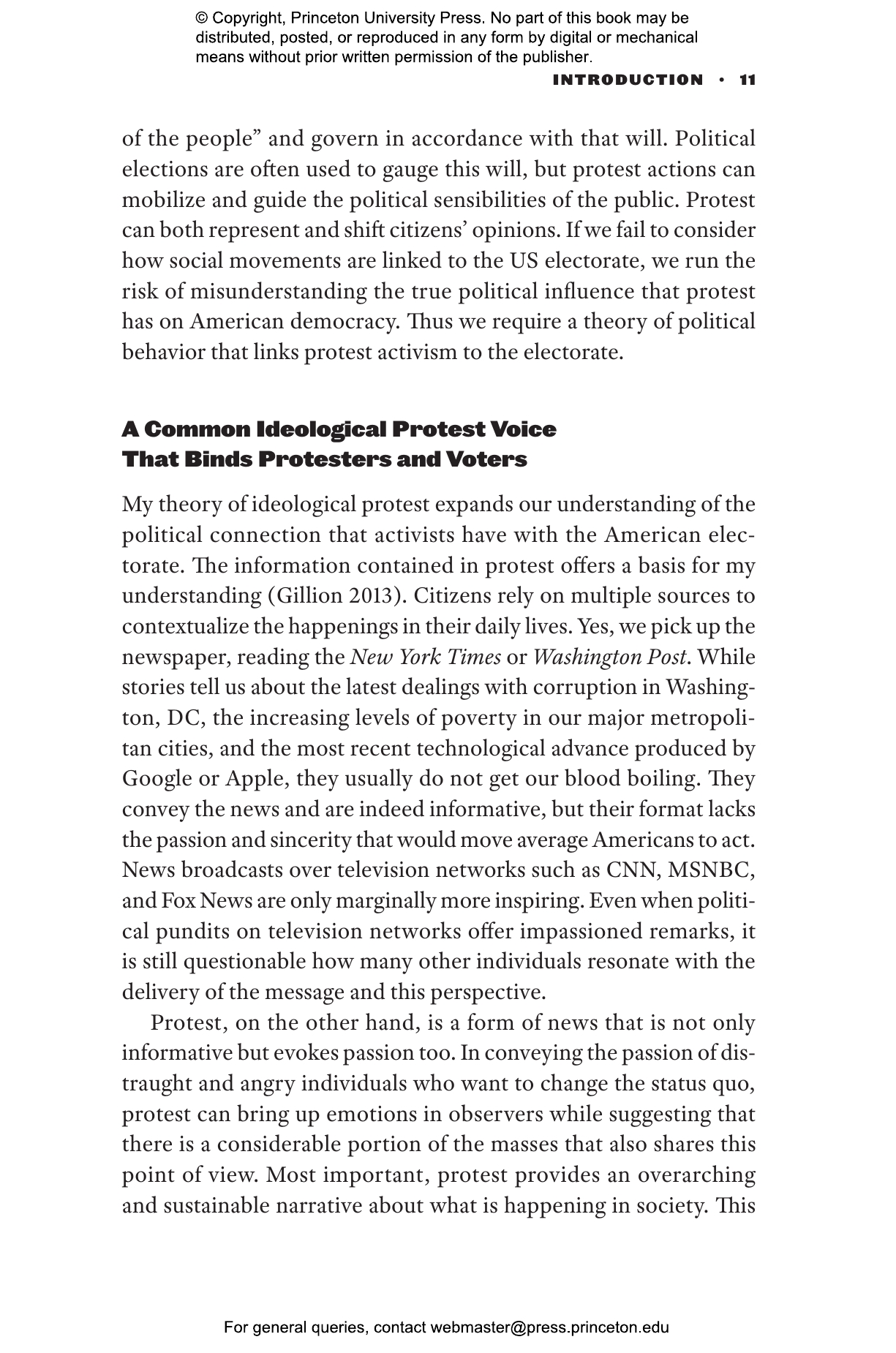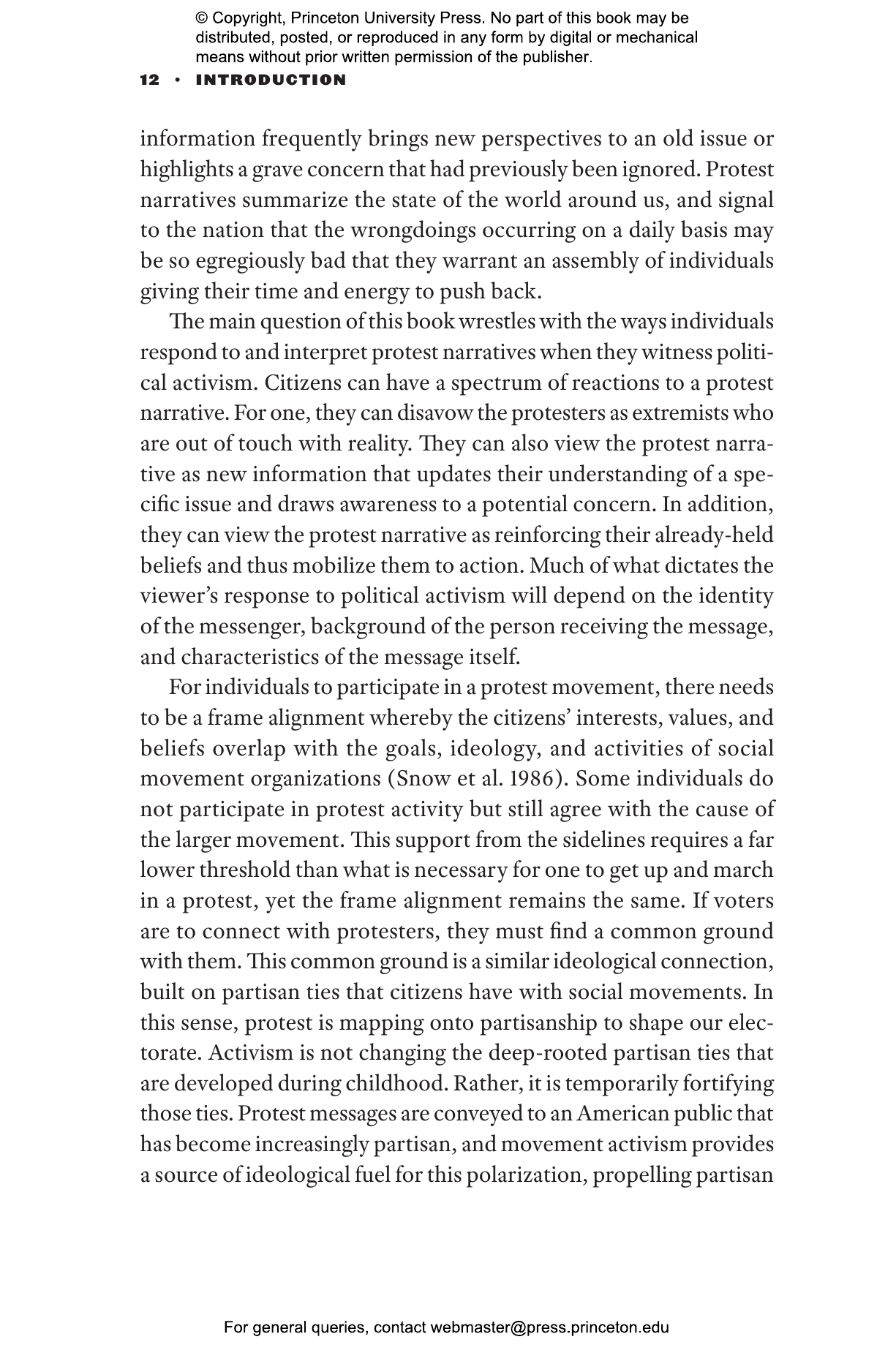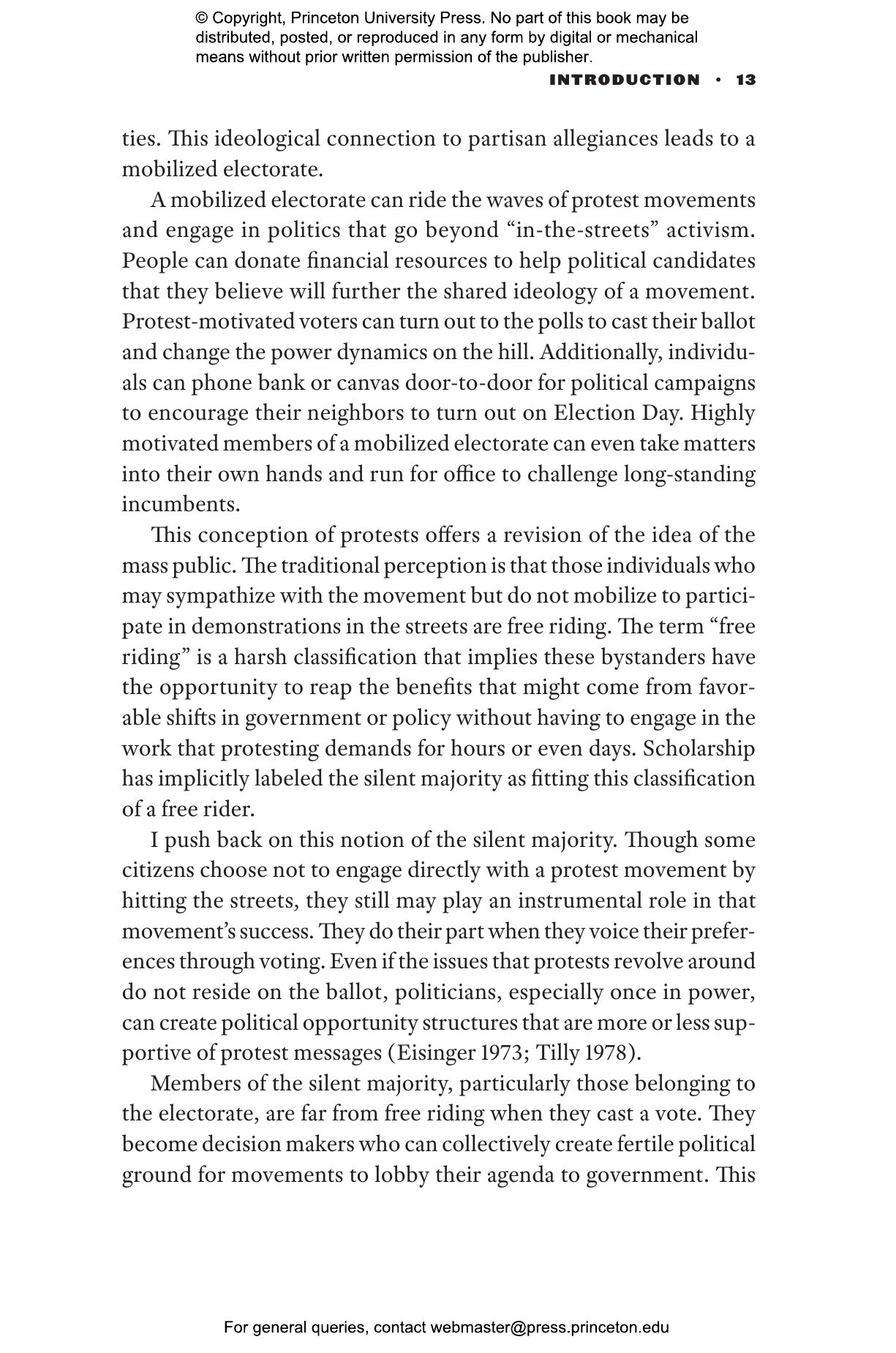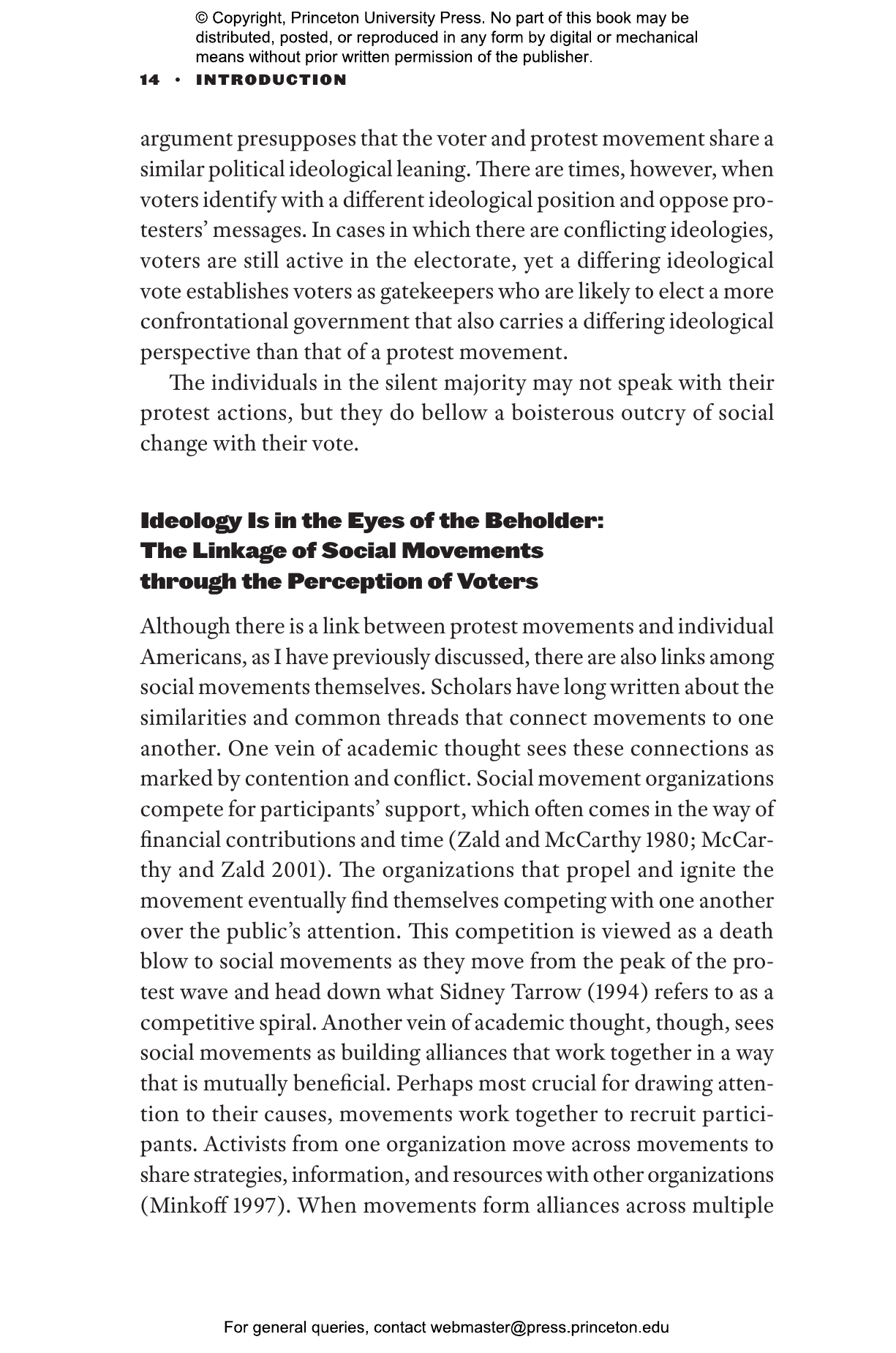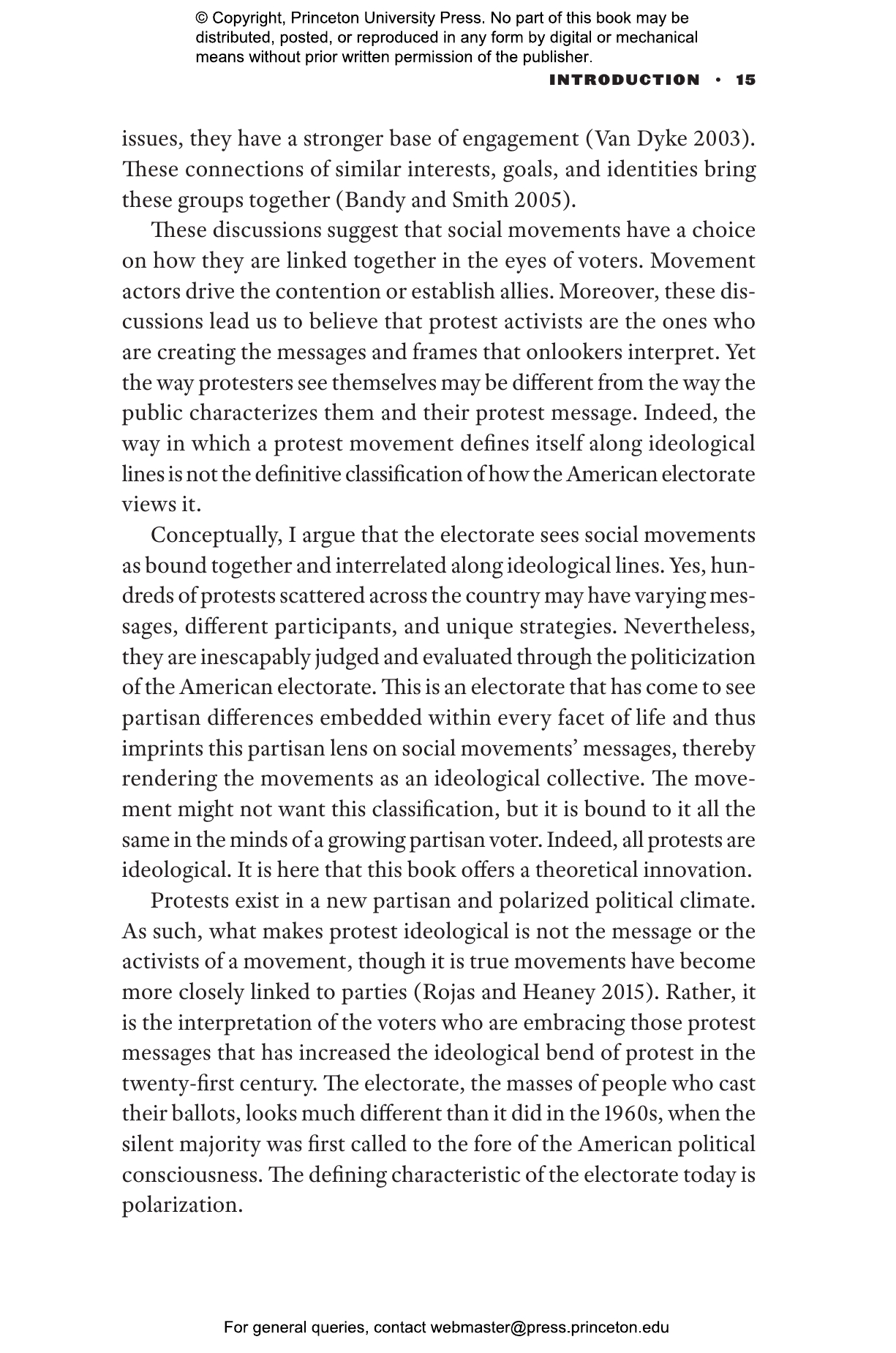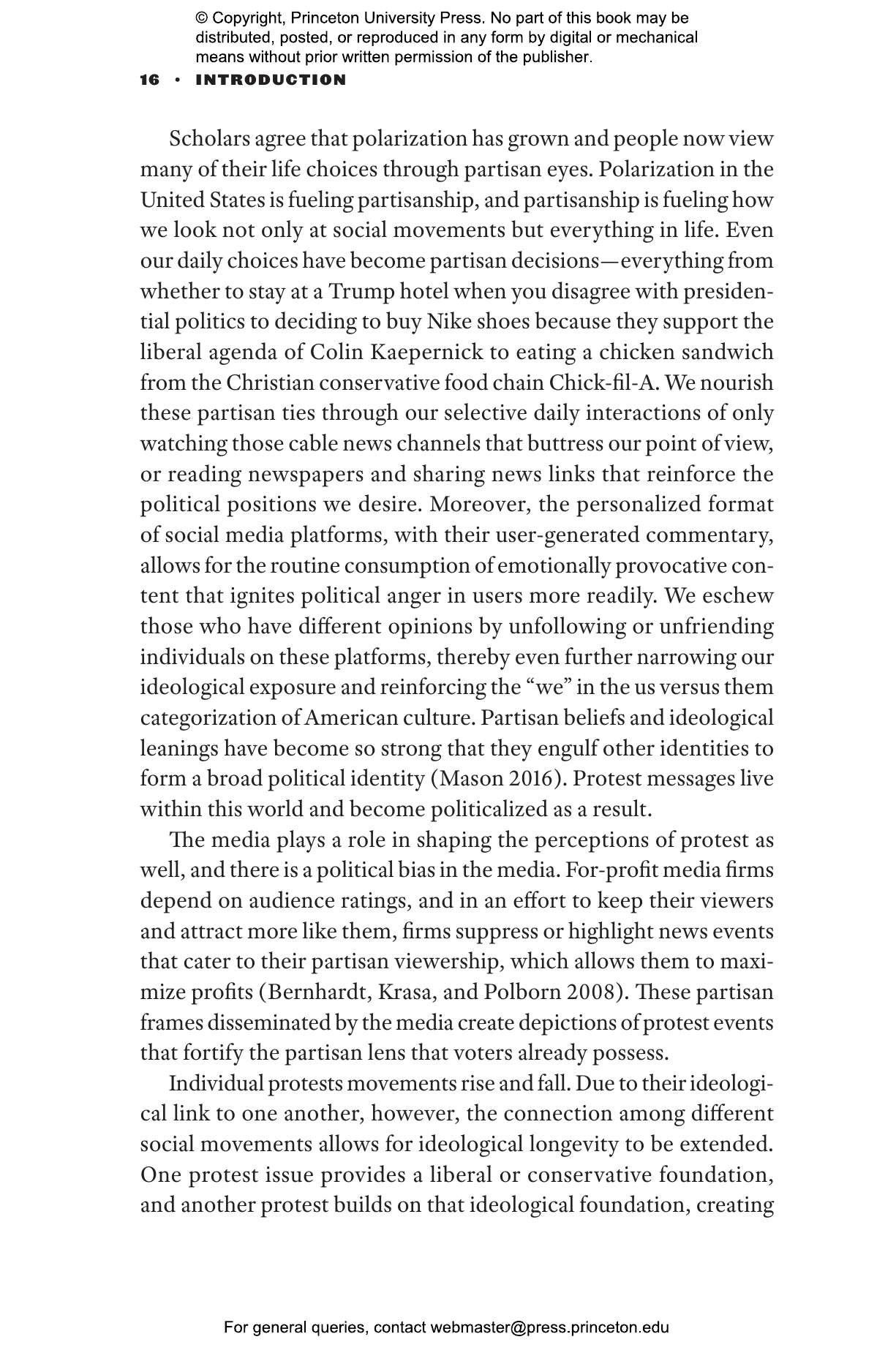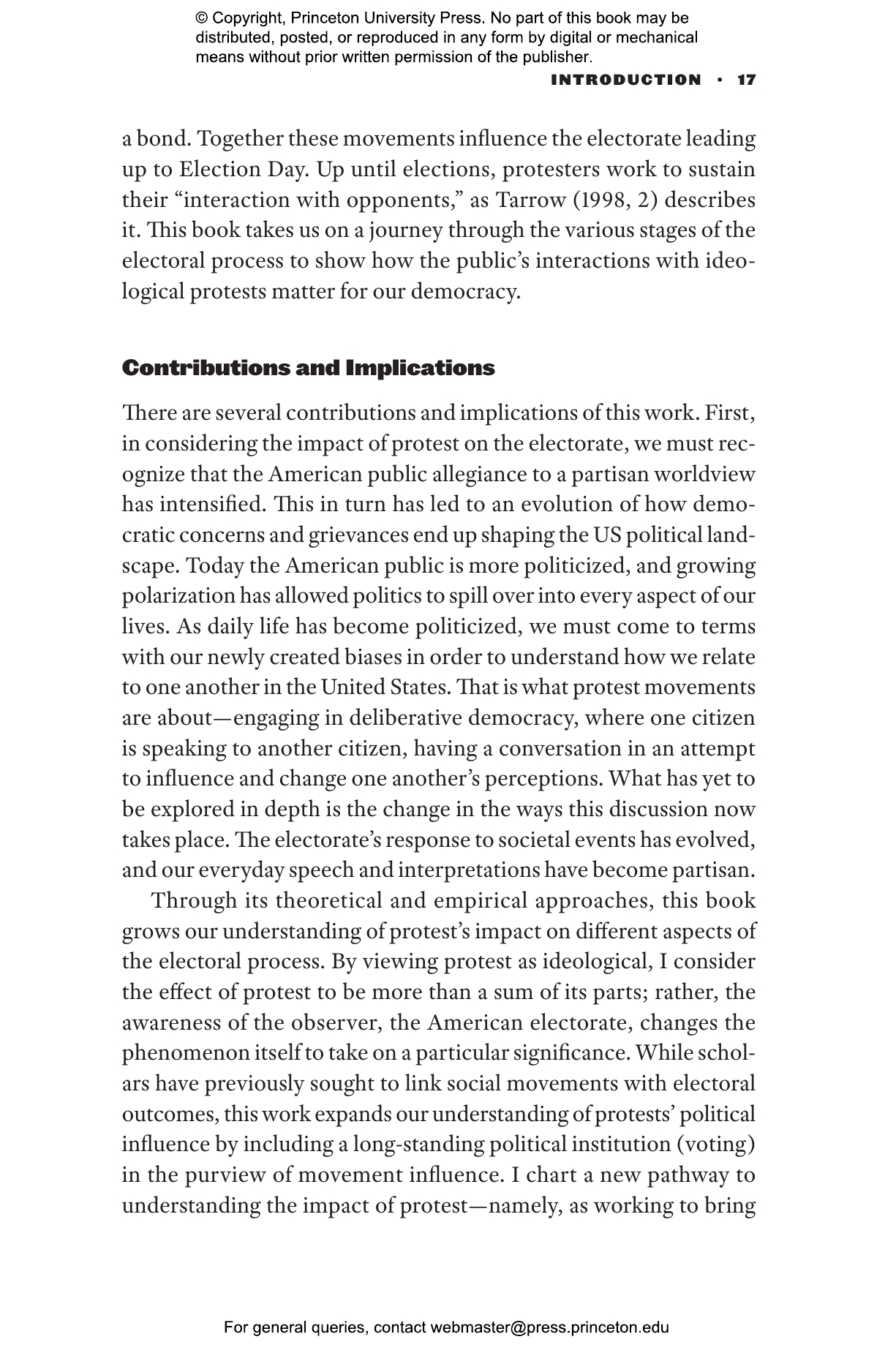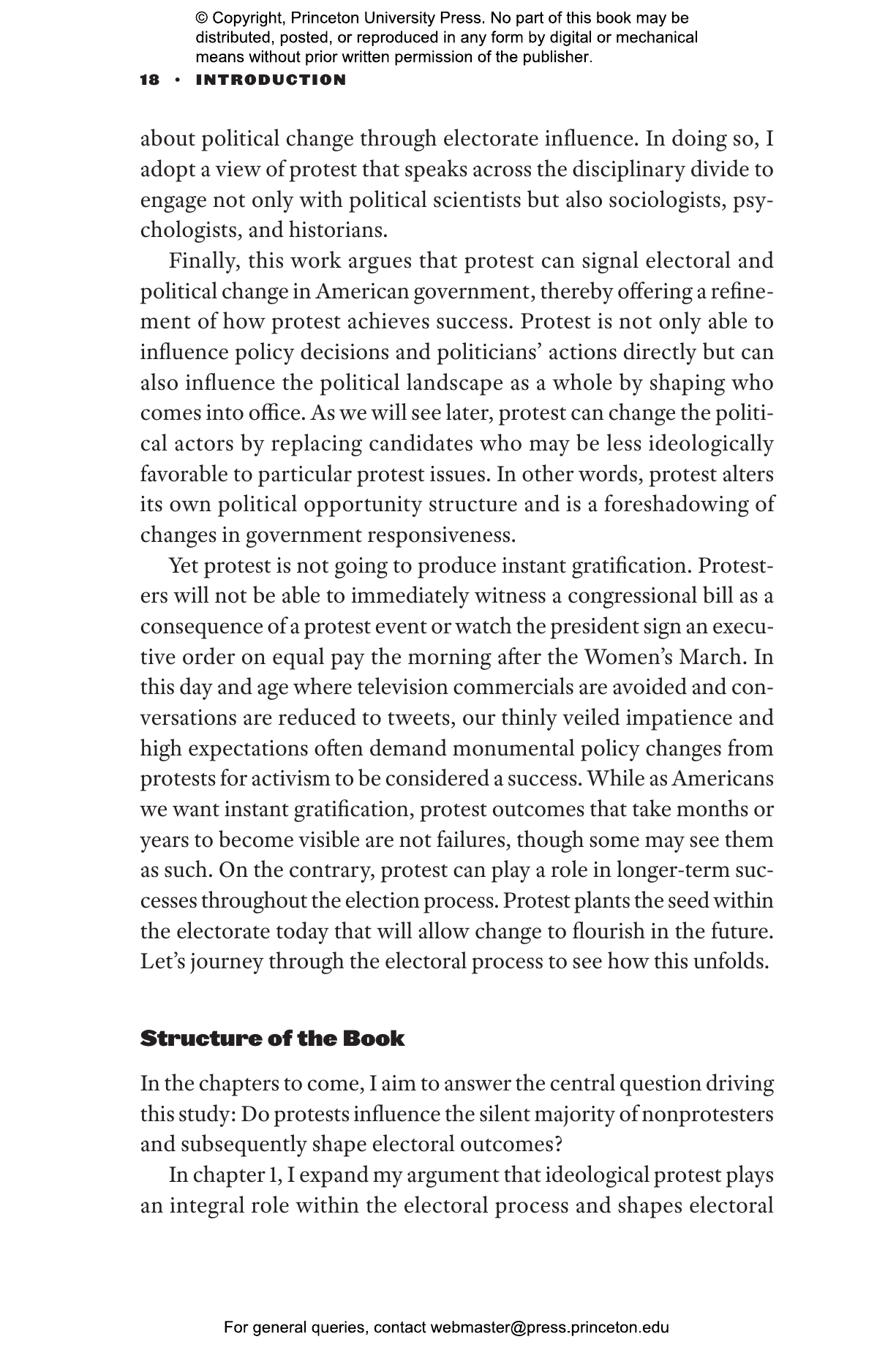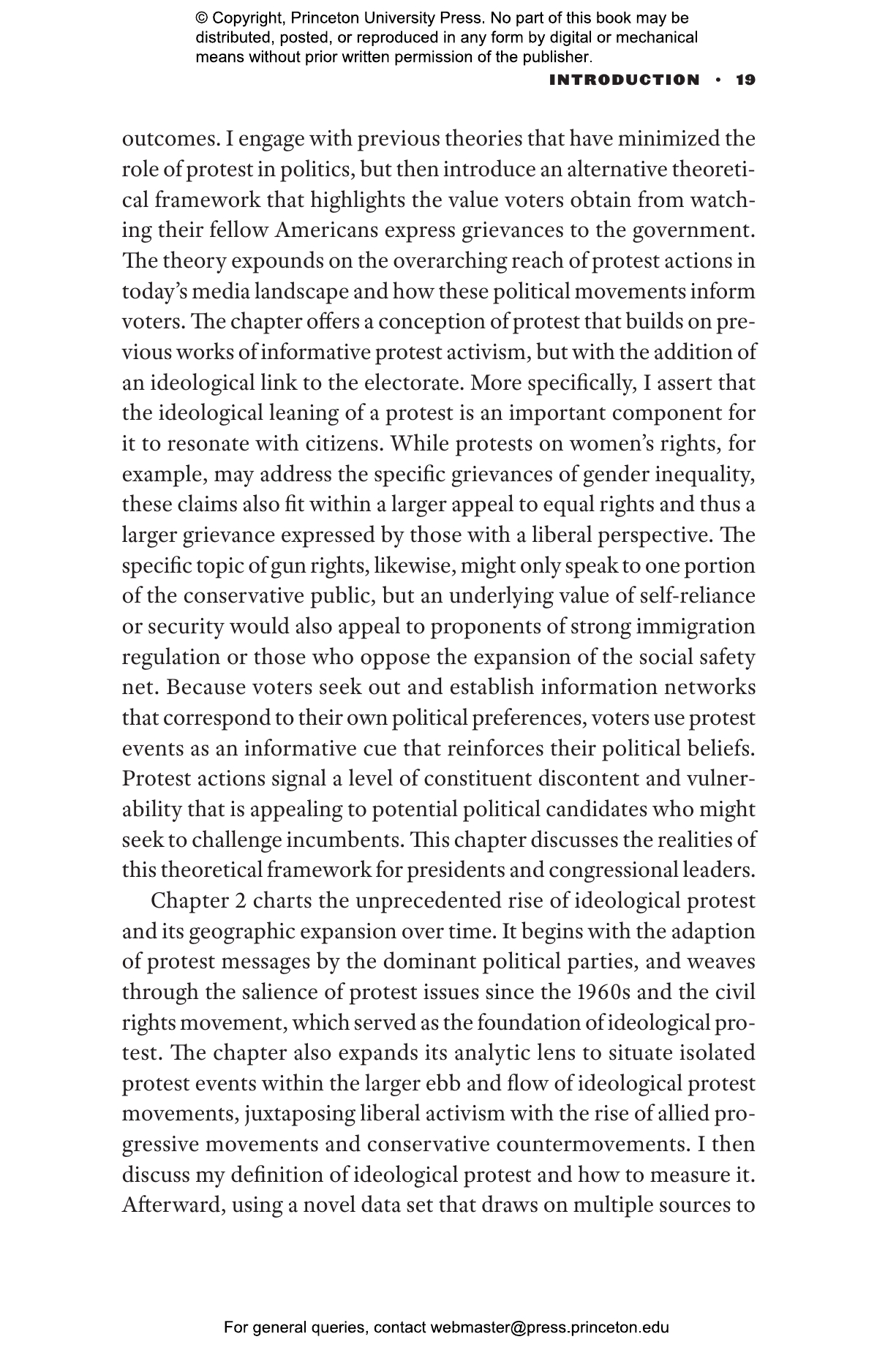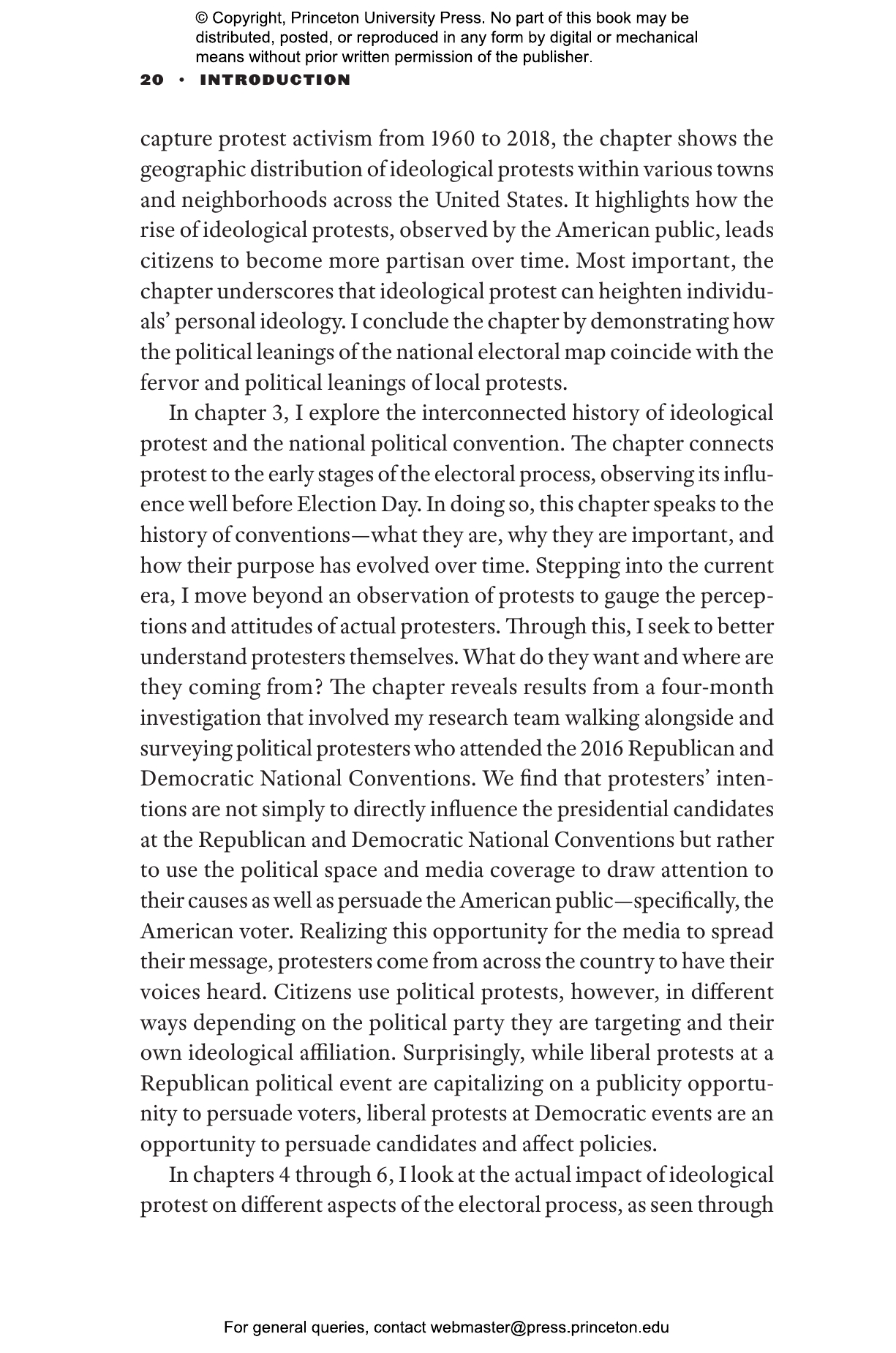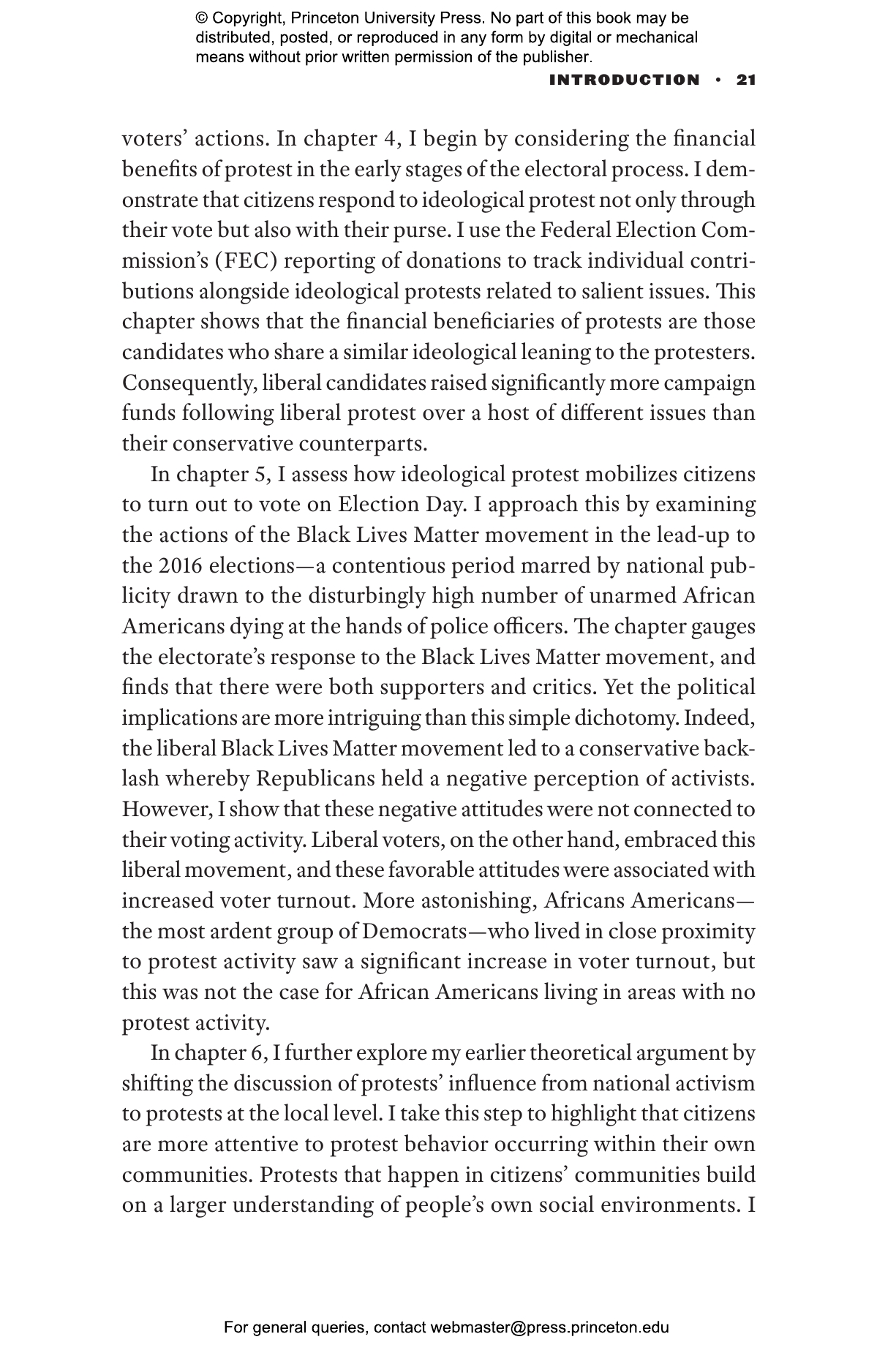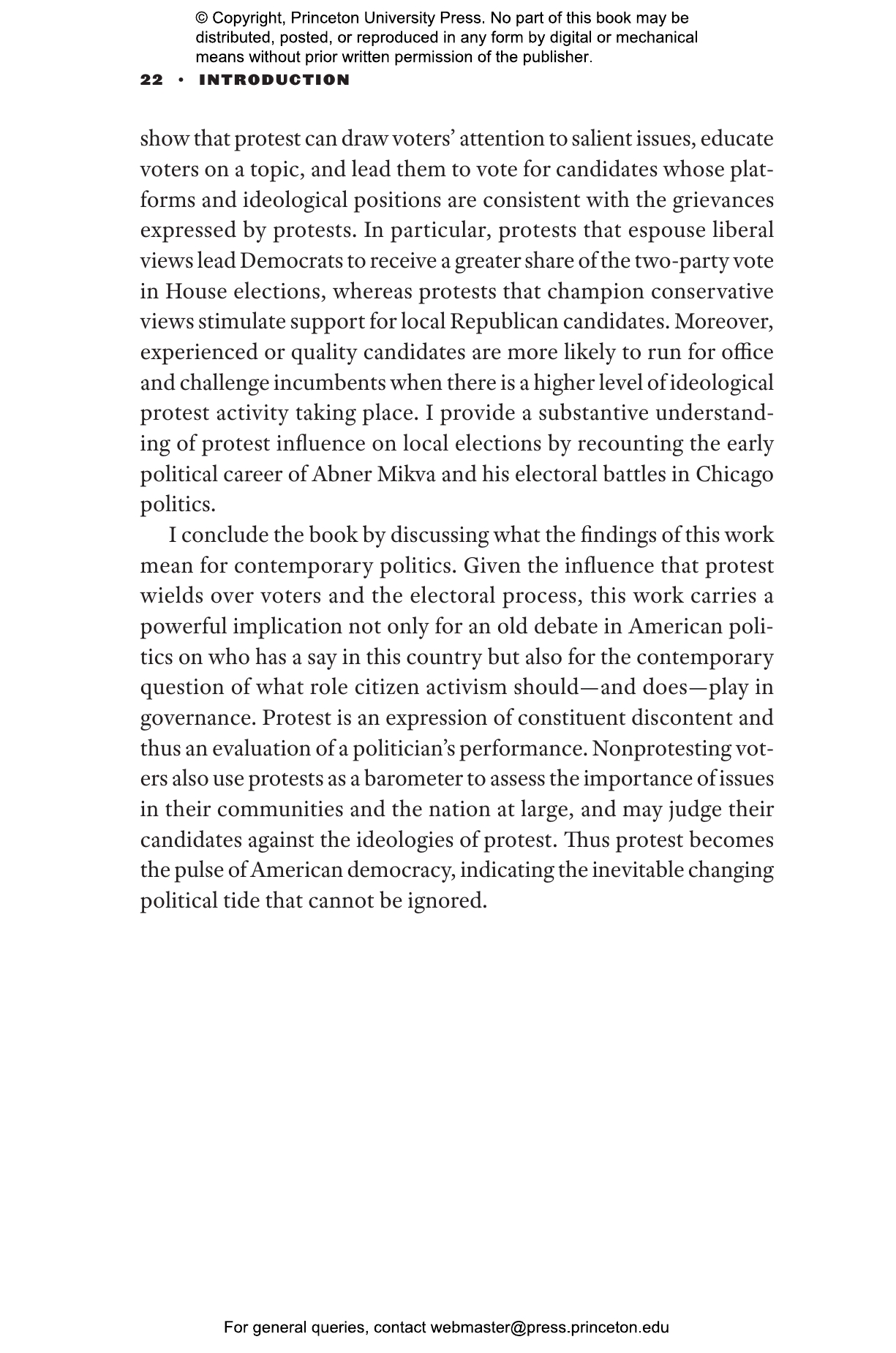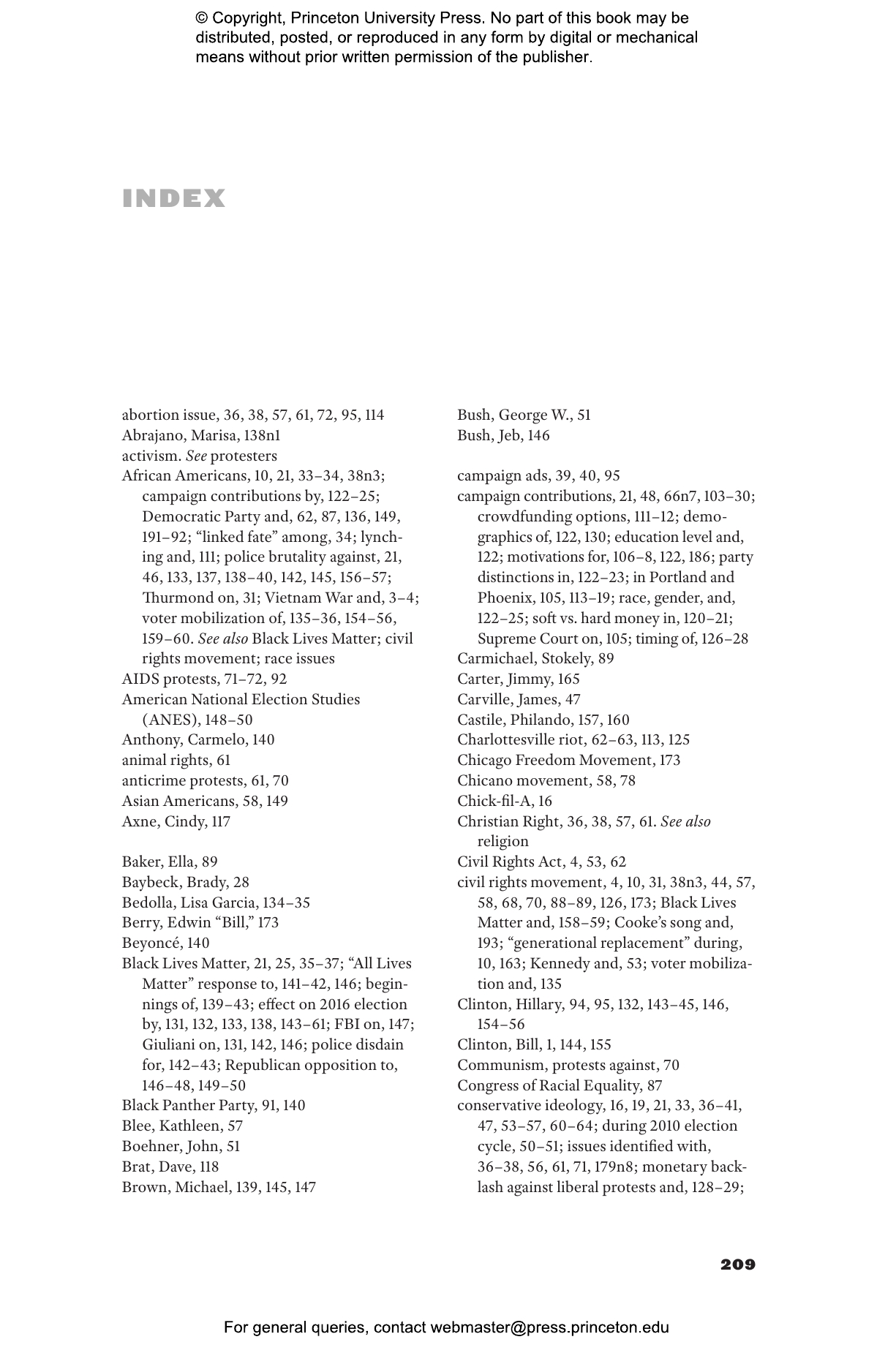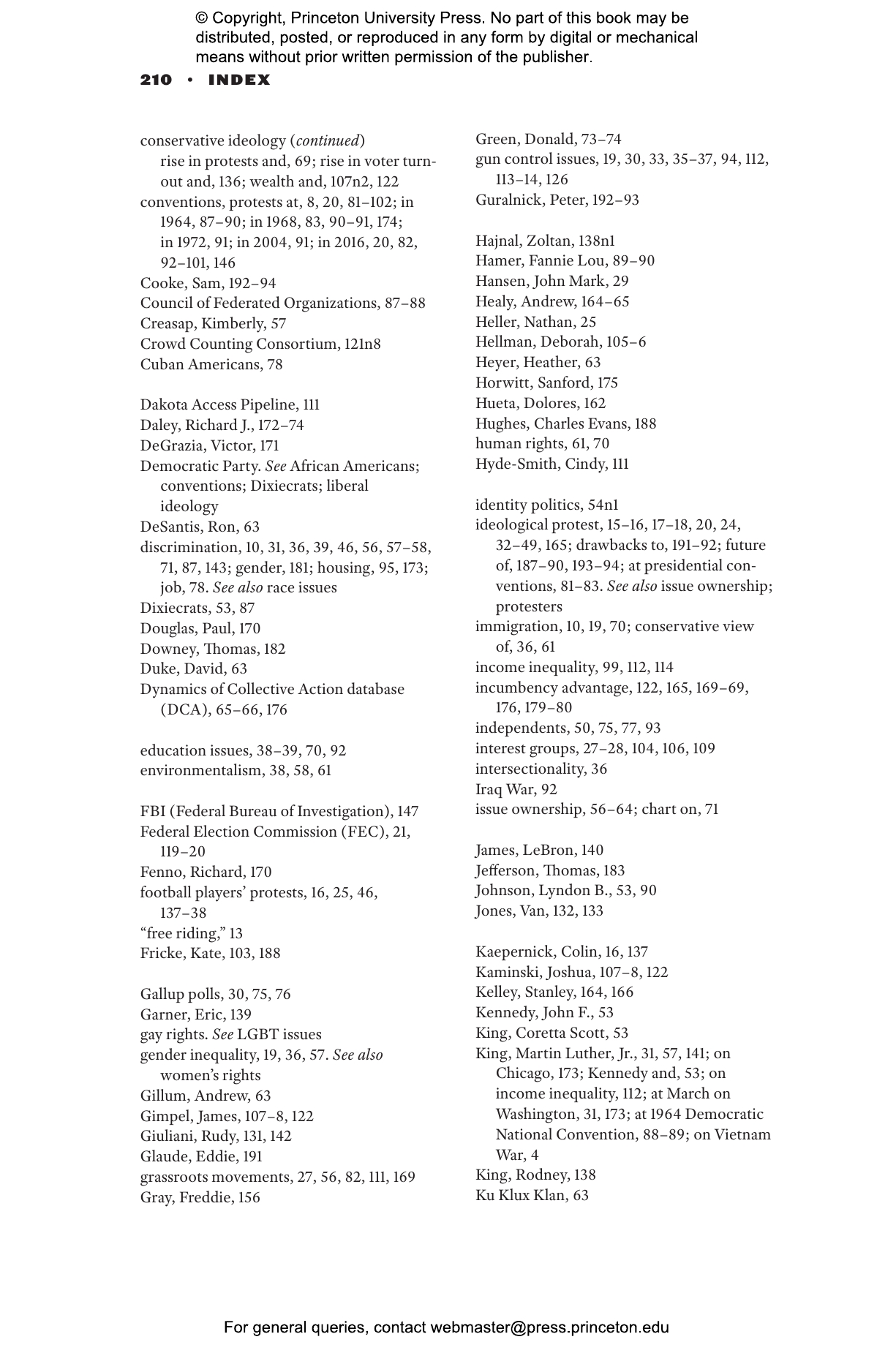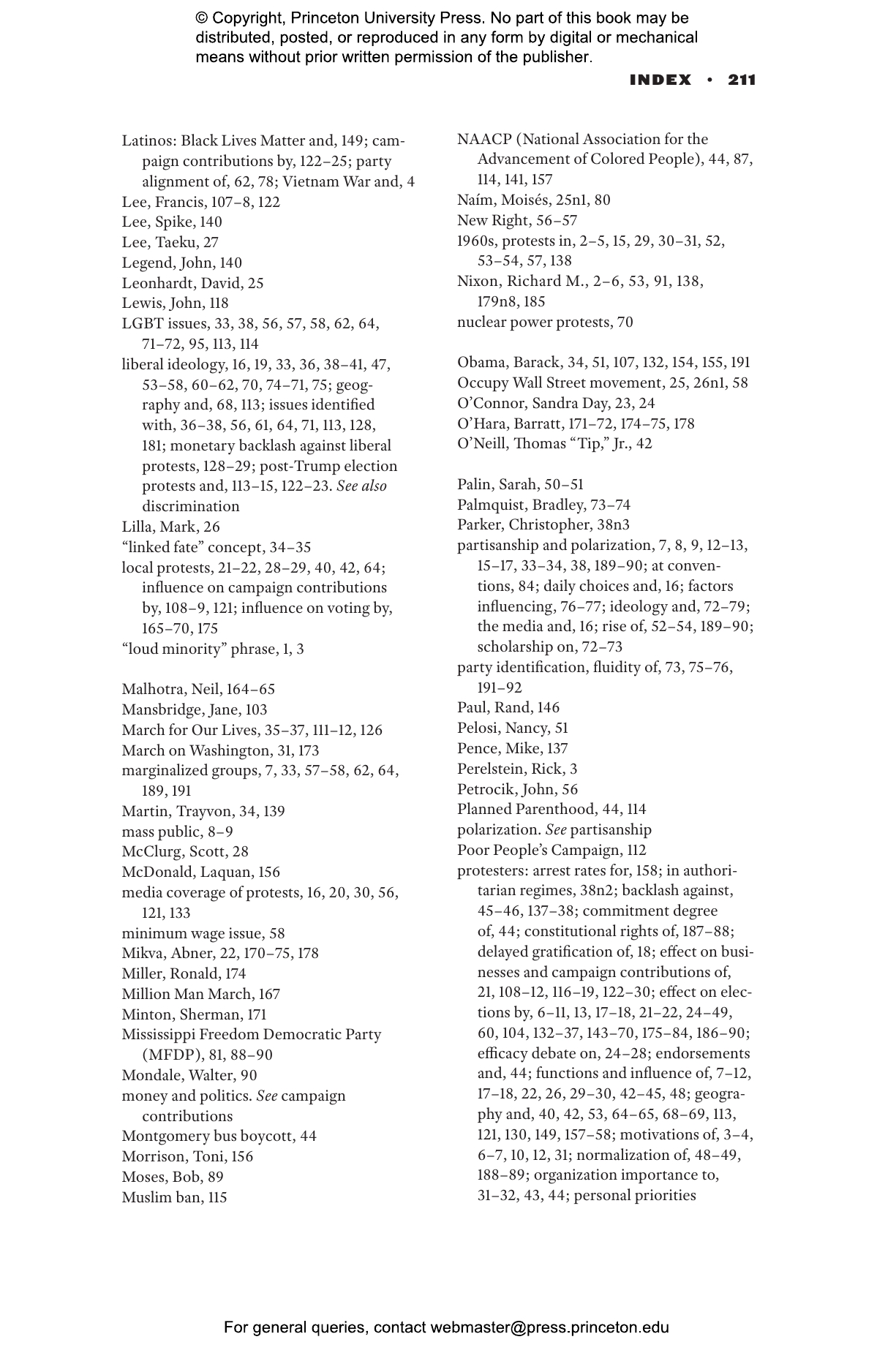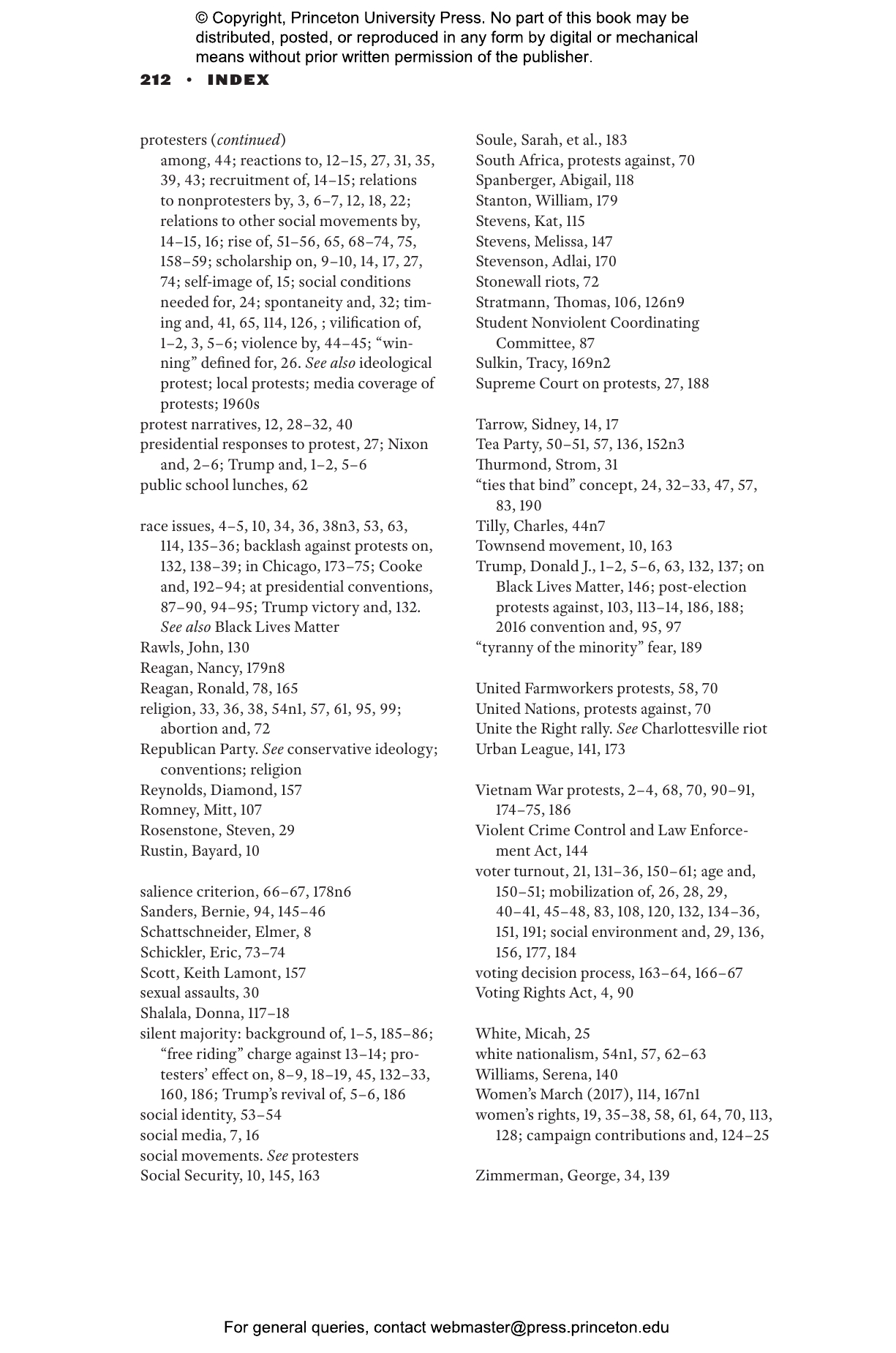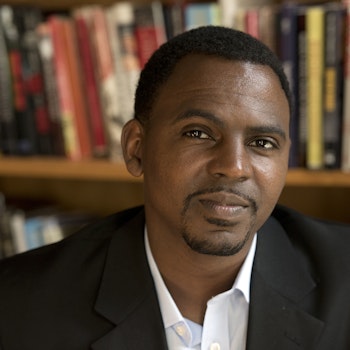The “silent majority”—a phrase coined by Richard Nixon in 1969 in response to Vietnam War protests and later used by Donald Trump as a campaign slogan—refers to the supposed wedge that exists between protestors in the street and the voters at home. The Loud Minority upends this view by demonstrating that voters are in fact directly informed and influenced by protest activism. Consequently, as protests grow in America, every facet of the electoral process is touched by this loud minority, benefiting the political party perceived to be the most supportive of the protestors’ messaging.
Drawing on historical evidence, statistical data, and detailed interviews about protest activity since the 1960s, Daniel Gillion shows that electoral districts with protest activity are more likely to see increased voter turnout at the polls. Surprisingly, protest activities are also moneymaking endeavors for electoral politics, as voters donate more to political candidates who share the ideological leanings of activists. Finally, protests are a signal of political problems, encouraging experienced political challengers to run for office and hurting incumbents’ chances of winning reelection. The silent majority may not speak by protesting themselves, but they clearly gesture for social change with their votes.
An exploration of how protests affect voter behavior and warn of future electoral changes, The Loud Minority looks at the many ways that activism can shape democracy.
Awards and Recognition
- Finalist for the PROSE Award in Government and Politics, Association of American Publishers
"Though grounded in statistical analysis, the book is clear and readable, and it succeeds, by and large, in offering a theory and empirical analysis of how activism and the outcomes of elections are related. Pushing back against skepticism about the efficacy and purpose of protest, The Loud Minority makes an often impassioned case for viewing activism, social movements, and protest as essential elements of democratic life rather than irregular disruptions of it."—Eric Pineda, Nation
"Accessible, powerful, and persuasive, The Loud Minority traces the ways that committed dissenters have animated and transformed American politics in the midst of an increasingly polarized electorate. Daniel Gillion delivers a masterful narrative about the power of protest to reflect and shape ideology, political discourse, and electoral outcomes in the United States. An essential book for our times."—Erica Chenoweth, Harvard University
"The Loud Minority shows not only how the politics of protests have become a firm part of ideological partisan conflict in the United States but also how protests can directly affect elections: by increasing voter turnout, increasing campaign contributions, and motivating higher-quality candidates to run for office. Daniel Gillion’s highly original book could not be more relevant to American politics today."—Robert Y. Shapiro, Columbia University
"Is the ‘silent majority’ swayed by the ‘loud minority’ of protesters? Not always, according to Daniel Gillion’s carefully gathered evidence. Even so, his new book highlights protesters’ influence at each stage of the political process—in donations, party conventions and primaries, voting behavior, and grassroots social movements. This refreshing study is a testament to the growth of a social movement society and to the power of protest to defend—and sometimes challenge—democracy."—Sidney Tarrow, author of Power in Movement
"Sociologists study protests and political scientists study elections, but until Daniel Gillion no one has successfully linked the two. Through innovative arguments and convincing analyses, The Loud Minority demonstrates that protests influence politics, particularly in our current polarized climate. This is required reading for understanding today’s political predicament."—Edwin Amenta, University of California, Irvine
"For far too long, the analysis of American politics has betrayed a stark disciplinary divide, with political scientists focused on electoral politics and sociologists on social movements. But in this important new book, Daniel Gillion redresses this artificial split and offers the richest empirical portrait to date of the myriad ways movements impact electoral politics."—Doug McAdam, author of Deeply Divided
"The Loud Minority is a theoretically and empirically rich exploration of the nature of protests. Innovatively thinking of protests not as single events, but as ideologically linked clusters of events that send signals to the body politic, this fantastic book is an outstanding contribution to the literature. It should be read by those interested in social movements, race and politics, elections, and political parties."—Frank R. Baumgartner, University of North Carolina, Chapel Hill
